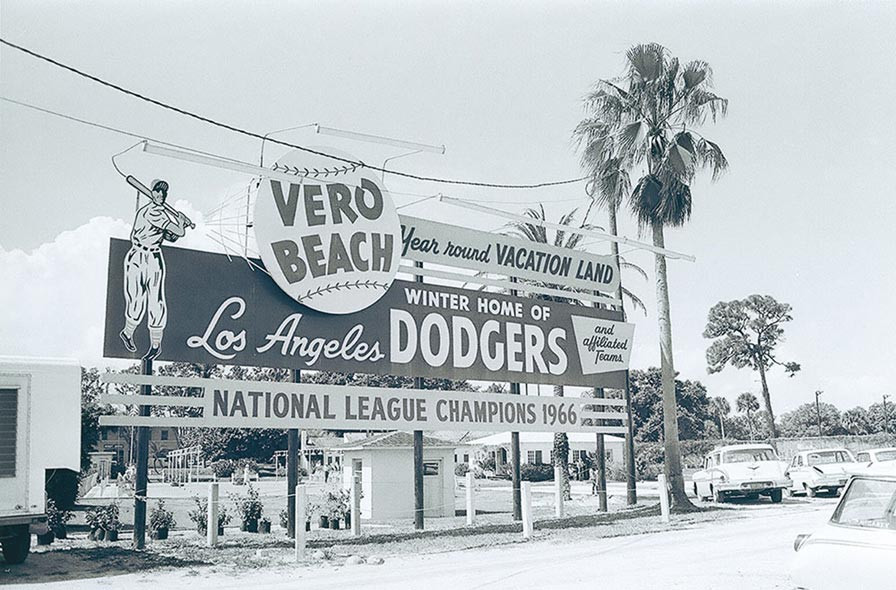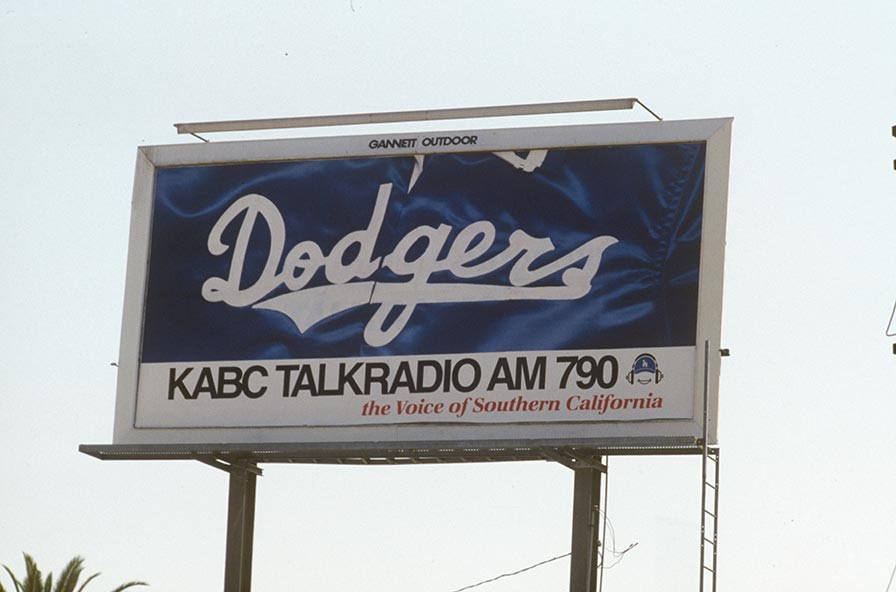This Day in Walter O’Malley History:
-
Dodgertown Director Peter O’Malley writes his father in Los Angeles regarding progress being made in preparation for 1962 Spring Training in Vero Beach, Florida. An advertising sign which read “Year-Round home of Eastern Air Lines and Winter Home of the Los Angeles Dodgers” had disappeared near the entrance to the Vero Beach Airport. “Bud (Holman) and I last week called the new City Manager, explained the disappearance of the sign, and requested that the City replace it,” wrote Peter. “He was most cooperative, and today there again stands, at the entrance to the Airport property, a 10 x 16 sign advertising Eastern Air Lines and the Dodgers. The City has paid for it, realizing that they were in error in removing the old one.”
-
On the heels of successful divisional play for the NFL, Walter O’Malley writes a letter to National League President Chub Feeney suggesting three divisional format for the National and American Leagues. He says, “Now, it becomes obvious to all of us, I hope, that a further divisional breakdown is not only practical but advisable.” In the N.L. West, the Dodgers, Houston, San Francisco and San Diego were grouped together. The N.L. Central featured Chicago, Cincinnati, Atlanta and St. Louis, while the N.L. East had Montreal, New York, Philadelphia and Pittsburgh. He continues, “I think baseball would do well to make this part of its long-range planning — for 1972.” In his response, Feeney agreed with the suggestion and believed that three divisions in each league “is worth study and serious consideration.” The three-divisional format was finally adopted by MLB for the 1994 season.
-
Walter O’Malley meets at Dodger Stadium with Ben Hoberman, General Manager of KABC AM 790, the new Dodger flagship radio station. After 14 years on 50,000-watt powerhouse clear channel KFI AM 640, the Dodgers moved to KABC for the 1974 season. In 1960, Hoberman began radio’s “all-talk” format on KABC and the station grew in status and popularity. With the addition of the Dodgers, thousands of new listeners to the station, who were sports fans, became converts to the talk format.



